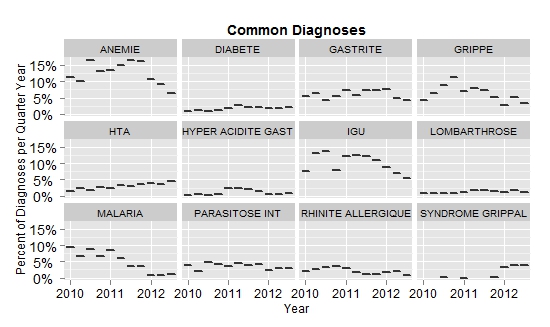This past week the last of our summer interns returned home, but they probably have as much work in front of them as their actual internship. For, we request a formal report to give us guidance on what we should be improving. We recently received our first report form Dr. Sristi, who returned earlier. Her report, "Maternal and Child Health at Visitation Clinic", was very well done and gives a glimpse into life in rural Haiti. Here are some excerpts:
Households: "Most of the respondents (70.9%) lived in 3-generation families. These types of families include the respondent and her spouse, their children as well as their parents. 25.5% of respondents lived in nuclear families while 3.6% lived in joint families, where in addition to parents, the household included respondent's brothers and sisters and their respective families."
Childbirth: Among 26 women who had recently given birth, 21 delivered at home. "Among the home deliveries, 90% of them were assisted by midwives, while 10% were un-assisted."
"None of the respondents were aware of the their child's birth weight"
Midwife training: "The respondents who reported using assistance of the midwives for delivery were asked if they were aware if the midwives had any formal training. 59.4% reported that their midwives were trained, 15.6% reported that their midwives were not trained, and 25% were unsure of the training status of their midwives. For most midwives who were trained, the place of training was reported as a nearby dispensary."
"Transportation is another major issue faced by the patients as well as the clinic. Most patients either travel on foot, or use local transportation services like a motorcycle. The would be a major issue for a patient in labor. A hospital ambulance service, especially for women in labor would be helpful for the community."
The entire 15-page report is replete with similar insights and facts. It reminds us that there are still challenging healthcare needs in our community, and it suggests some good ways to respond to them. For this we are most grateful. We only hope that our interns know how appreciated there work is. May they be blessed with the deep sense of satisfaction that comes from a job well done.




































 s
s












